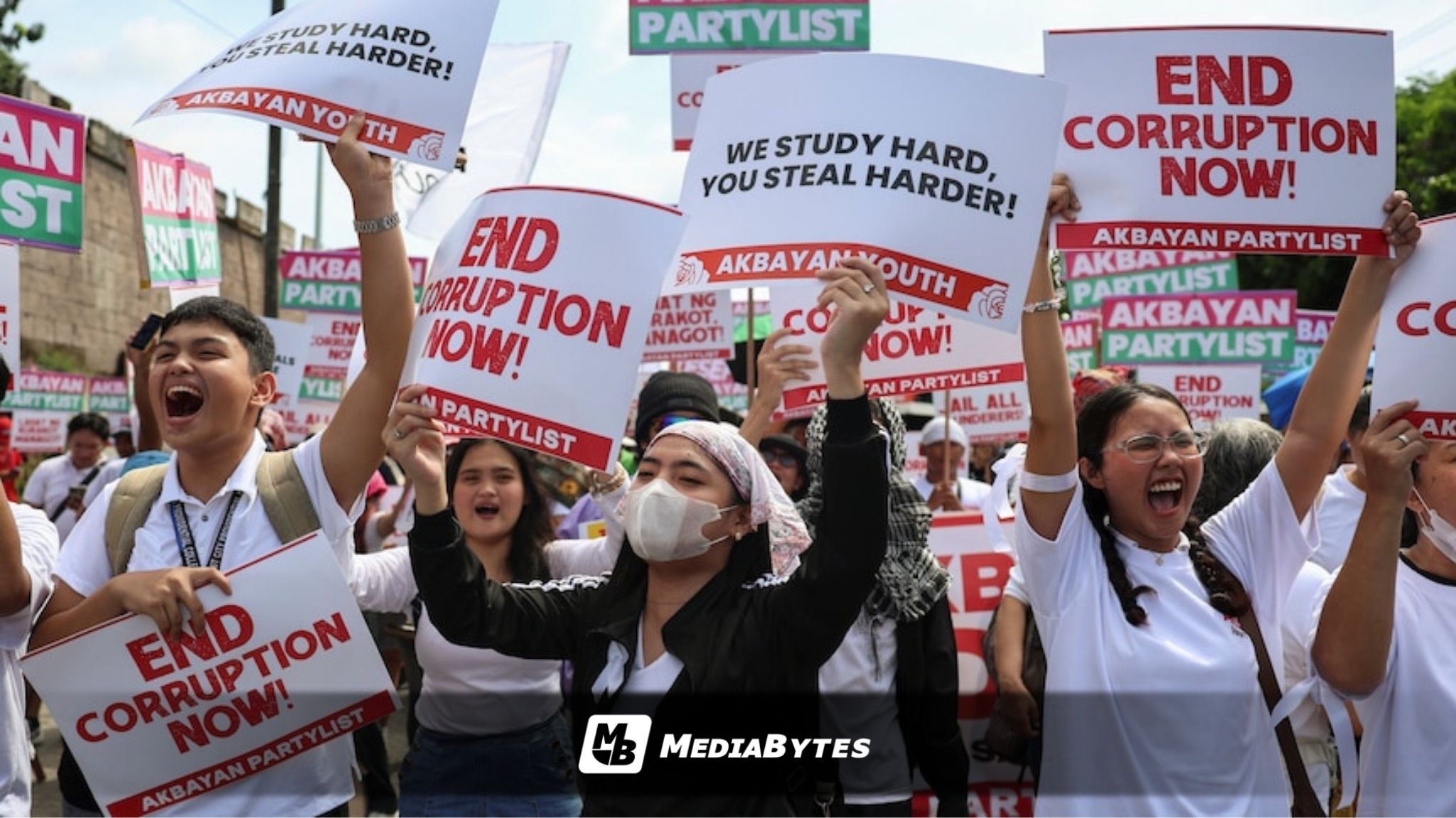A recent OCTA Research survey found that 60% of Filipinos feel “disgusted” or extremely angry about the widespread corruption occurring in the country.
In an interview on Wednesday, October 15, OCTA Research Founder and President Prof. Ranjit Rye explained that several factors contributed to this strong public sentiment.
“Unang-una, konteksto muna. ‘Yong survey naming ginawa, iyong questions namin ginawa first week ng September. Tapos ‘yong actual pag-aaral, ginawa noong September 25 to 30, so relatively new ito. 1200 respondents, all-around the country,” said Rye.
He emphasized that the survey results reflect the national pulse during a politically significant period.
“So medyo representative itong sample na ‘to, and importante sa mananaliksik, sa mga kagaya namin sa UP at saka ‘yong mga kasama namin sa OCTA, na makuha natin ‘yong pulso ng ating bayan, during important periods sa ating kasaysayan,” he explained, noting that the survey covered the time around the large rally held on September 21.
Rye added that President Ferdinand “Bongbong” Marcos Jr. still enjoys strong public support for his anti-corruption initiatives despite potential political risks.
“Ano bang unang lumabas sa aming survey? Number 1 finding… Kahit na matatamaan siya politically, matibay ang suporta para kay PBBM hakbang niya laban sa katiwalian, 83%. Sabi nila tama ‘yong ginawa ni PBBM, na ibinulgar niya ‘yong katiwalian sa gobyerno,” he said.
Rye underscored how public outrage could help shape the government’s and civil society’s response to corruption.
“Ang tanong namin, ano ba ang nararamdaman ng mga kababayan natin kapag napapakinggan nila ang katiwalian, lalo na itong isyu ng flood control projects scandal? Ang lumalabas, 60% ang nakakaramdam ng ‘pagkasuklam,’ sobrang galit… kasi ‘yan ang puwedeng maka-disenyo ng programa, ng response ng gobyerno, ‘yong civil society, based on how we understand itong mga nangyayari sa ating kapaligiran,” he explained.
According to the survey, 30% of respondents said they felt fear and anxiety, 9% felt sadness and disappointment, and 1% expressed optimism regarding the issue.
Rye also highlighted the significant influence of Millennials and Gen Z in driving the anti-corruption sentiment.
“Tingnan mo ‘yong age distribution niyan, chunk ng ating population ay Millenials at Gen Z. Ang lumalabas, doon sa age distribution, mas mataas sa national average ‘yong nakikita natin sa kanila, more than 60%, 64%, 67%,” he said.
“So ang ibig sabihin, mas galit ‘yong mga nasa age group na ‘yan. At given na malaki ang prosyento nila, sila ho ang nakikita nating nagda-drive ng movement na ‘yan, na anti-corruption,” he added.
He noted that this was evident in recent protest rallies, where the majority of participants were young people.
The study also revealed growing public distrust in traditional political institutions, with many Filipinos preferring an independent commission—rather than Congress or the Senate—to lead investigations into the alleged flood control project anomalies.
Recently, Malacañang responded to public clamor for swift accountability in corruption cases.
“Kalma lang! Hindi po kasi ito nadadaan sa agad-agaran. Siguro bilang lawyer, na ako ay mismong humahawak ng mga kaso at ako po ay humaharap mismo sa Korte, kaya alam ko po kung paano ba magpresenta ng isang ebidensya,” said Palace Press Officer Undersecretary Claire Castro.



